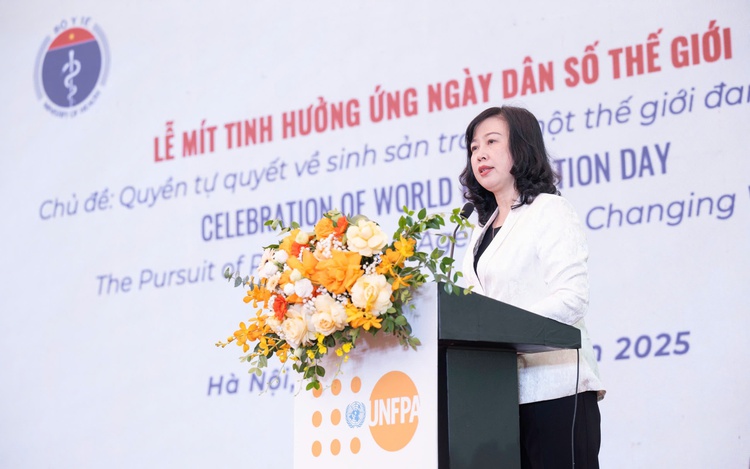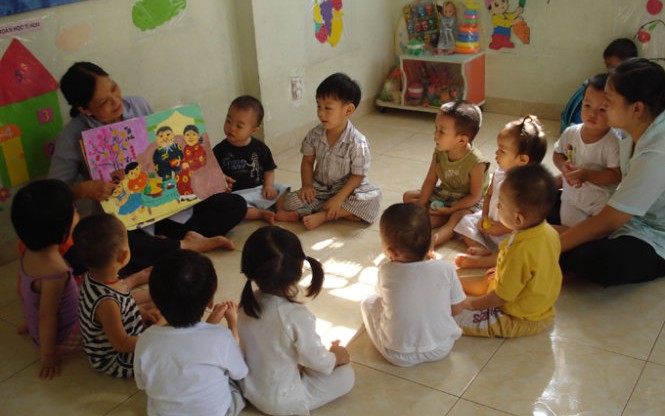
Vietnamese Health Minister Dao Hong Lan speaks at a ceremony marking World Population Day in Hanoi, Vietnam, July 11, 2025. Photo: D. Lieu / Tuoi Tre
Speaking at a ceremony marking World Population Day (July 11) in Hanoi, Health Minister Dao Hong Lan said the ministry is developing population policies that respond to regional and national challenges, including aging, reproductive health, and gender equality.
"One of the key proposals is to provide financial or material support to families with only daughters, to encourage gender balance and reduce son preference," Lan said.
Other proposed policies include childbirth incentives, prenatal and neonatal screening support, and housing subsidies for families with children.
Vietnam's total fertility rate dropped to a record low of 1.91 children per woman in 2024, according to the Ministry of Health – the lowest level in the country's demographic history.
The minister warned that the trend continues downward.
Meanwhile, the gender ratio at birth remains skewed.
In 2024, there were 111.4 boys born for every 100 girls – significantly higher than the natural rate of around 105:100 – despite previous efforts to curb the imbalance.
Lan also noted that teenage pregnancy, child marriage, and consanguineous marriages remain widespread in several regions, particularly in the Central Highlands and northern mountainous provinces, accounting for 21.9 percent of births in those areas.
While Vietnam's average life expectancy has increased, the average number of healthy years lived remains relatively low at 65 years, with many elderly people suffering from chronic illnesses.
In response, the ministry is drafting a new Population Law and a national health and population program for 2026–2035.
The draft policies include premarital health screenings, congenital disorder treatment, elderly care systems, and tuition waivers or scholarships for students in geriatrics.
United Nations representatives at the event praised Vietnam's efforts.
Pauline Tamesis, UN Resident Coordinator in Vietnam, said the UN would continue supporting the country in improving access to quality reproductive health services and expanding comprehensive sexuality education.
Matt Jackson, UNFPA Representative in Vietnam, emphasized that reproductive rights are central to sustainable development.
Empowering individuals to make informed reproductive choices strengthens families, promotes gender equality, and drives long-term demographic change, he said.



Max: 1500 characters
There are no comments yet. Be the first to comment.